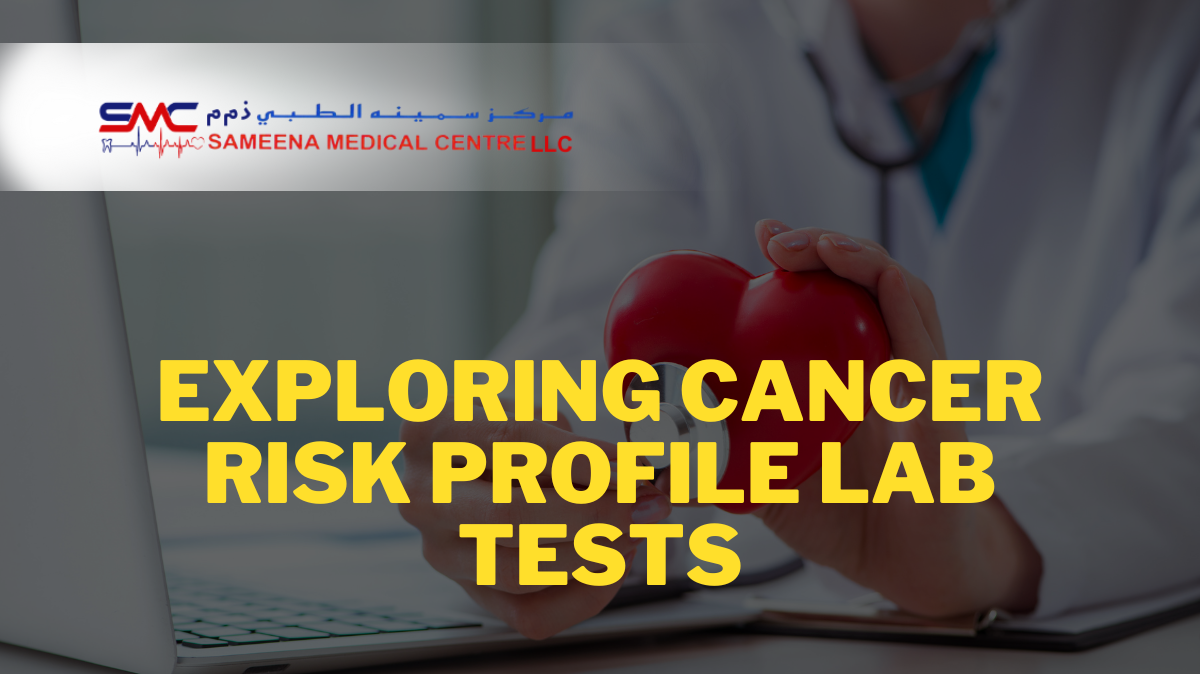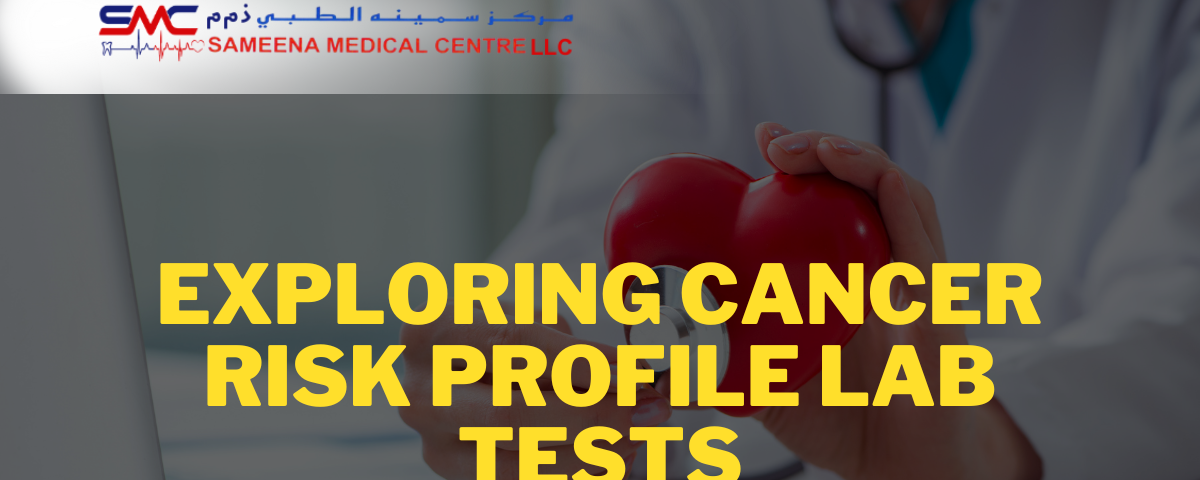
Teeth Bonding vs. Veneers In Sharjah
March 21, 2024
Prevent Heart Disease Early: The Power of Cardiac Risk Profile Lab Tests
July 19, 2024The Future of Early Detection: Exploring Cancer Risk Profile Lab Tests

Curious about your risk of developing cancer? Who isn’t? We live in an age where knowledge is power, and the more you know about your health, the better you can manage it. That’s where cancer risk profiling comes into play. This revolutionary approach helps you understand your predisposition to various types of cancer, allowing you to take proactive steps to safeguard your health.
Understanding Cancer Risk
Cancer isn’t a one-size-fits-all disease. Different factors contribute to your overall risk, and understanding these can help you make informed decisions. Let’s break it down:
Genetic Factors
Your DNA is like a blueprint for your body, and sometimes, there are inherited mutations that increase your cancer risk. Genes like BRCA1 and BRCA2 are well-known culprits when it comes to breast and ovarian cancers. Knowing your genetic makeup can be a game-changer.
Environmental Factors
We can’t always control our environment, but we can understand its impact. Exposure to pollutants, radiation, and certain chemicals can increase your cancer risk. Think of it as the invisible enemy lurking in the background.
Lifestyle Factors
What you eat, how active you are, and habits like smoking or excessive drinking play a huge role in your cancer risk. Lifestyle is one of the areas you have the most control over, so understanding its impact is crucial.
What is a Cancer Risk Profile Lab Test?
So, what exactly is this test all about? It’s a comprehensive analysis that looks at various factors to give you a clearer picture of your cancer risk.
Purpose and Importance
The main goal of the test is to empower you with information. By identifying your risk factors, you can work with healthcare professionals to develop a personalized prevention or monitoring plan. It’s all about staying one step ahead.
How It Works
The test usually involves a combination of blood tests, genetic screenings, and detailed questionnaires about your lifestyle and family history. It’s like putting together pieces of a puzzle to see the whole picture.
Components of a Cancer Risk Profile Lab Test
The test isn’t just one thing; it’s a collection of different analyses that together provide a comprehensive risk profile.
Genetic Testing
This part looks for specific genetic mutations that increase cancer risk. It’s like a detective searching for clues in your DNA.
Biomarker Analysis
Biomarkers are substances in your body that can indicate disease. By analyzing these, doctors can spot early warning signs of cancer.
Lifestyle Assessment
This involves detailed questions about your diet, exercise habits, and other lifestyle factors. It’s all about painting a complete picture of your health.
Who Should Consider a Cancer Risk Profile Lab Test?
Not everyone needs this test, but there are certain groups who could benefit greatly.
High-Risk Groups
If you belong to a high-risk group due to age, gender, or ethnicity, this test can provide valuable insights.
Family History of Cancer
A strong family history of cancer is a red flag. If several close relatives have had cancer, your risk might be higher, making this test especially important.
Personal Health Concerns
If you’ve had health scares or unusual symptoms, a cancer risk profile can help identify potential issues early on.
Benefits of Early Detection
Catching cancer early can make all the difference in treatment and outcomes. Here are some benefits of early detection:
Prevention Strategies
With early detection, you can adopt prevention strategies tailored to your specific risks. It’s like having a roadmap to a healthier future.
Tailored Health Plans
Your healthcare provider can create a personalized health plan based on your risk profile, focusing on areas that need the most attention.
Interpreting Your Results
Getting your results can be a bit overwhelming, but understanding what they mean is crucial.
Understanding Genetic Markers
Genetic markers are like signposts indicating potential risks. Knowing what they mean helps you and your doctor decide on the best course of action.
Lifestyle and Environmental Factors
These results highlight areas where you can make changes. Maybe it’s about quitting smoking, or perhaps you need to be more vigilant about avoiding certain chemicals.
Taking Action Post-Test
Once you have your results, it’s time to act. Here’s how:
Medical Consultation
Discuss your results with a healthcare professional to understand your risk profile and next steps. It’s like getting a personalized health guide.
Lifestyle Changes
Based on your results, you might need to make some lifestyle changes. This could be anything from changing your diet to increasing your physical activity.
Conclusion
A cancer risk profile lab test is a powerful tool in the fight against cancer. It gives you the knowledge you need to take proactive steps and make informed decisions about your health. Remember, knowledge is power, and when it comes to cancer, being informed can make all the difference.
FAQs
Q1: How accurate is a cancer risk profile lab test?
The test is quite accurate in identifying genetic mutations and other risk factors, but it’s important to discuss the results with your healthcare provider for a comprehensive understanding.
Q2: Can lifestyle changes really reduce my cancer risk?
Absolutely! While you can’t change your genetics, adopting a healthier lifestyle can significantly reduce your overall cancer risk.
Q3: Is the test covered by insurance?
It depends on your insurance provider and policy. It’s best to check with them directly to understand your coverage options.
Q4: How often should I get tested?
If you’re at high risk, your doctor might recommend regular testing. Otherwise, it might be something you do once or twice depending on your initial results.
Q5: Can I take the test at home?
Some components of the test can be done at home, but others require a visit to a lab or healthcare facility. It’s best to consult with your healthcare provider for specifics.





